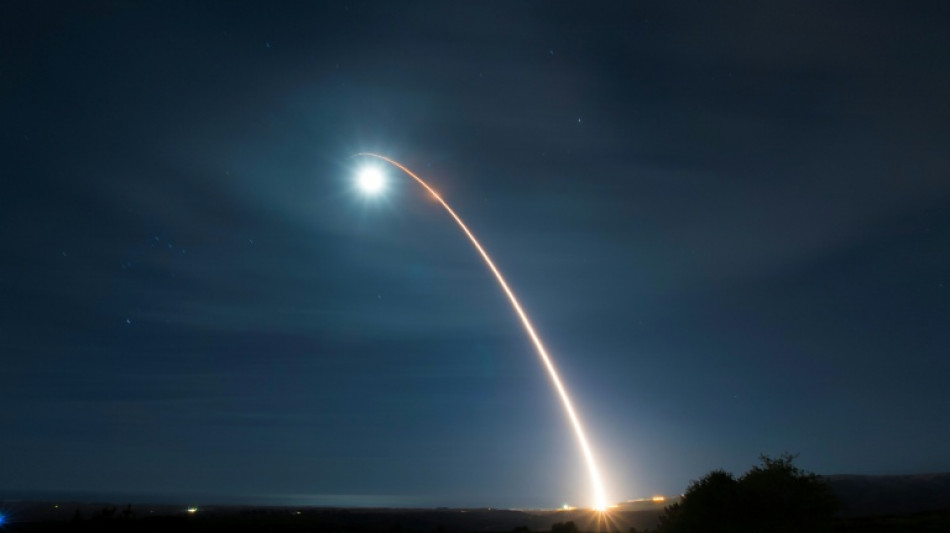
-
 Caught between Venezuela and US, Trinidad fishermen fear the sea
Caught between Venezuela and US, Trinidad fishermen fear the sea
-
Latest NFL Chiefs-Bills duel has both chasing division leaders

-
 Sierra Leone chases rare repeat in Breeders' Cup Classic
Sierra Leone chases rare repeat in Breeders' Cup Classic
-
King Charles strips Andrew of royal titles, Windsor home
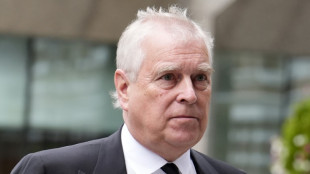
-
 Sinner and Zverev march into Paris Masters last eight
Sinner and Zverev march into Paris Masters last eight
-
Sales of 'services' help Apple beat earnings forecasts

-
 Beyond words: '67' crowned 'Word of the Year'
Beyond words: '67' crowned 'Word of the Year'
-
Amazon shares surge as AI boom drives cloud growth

-
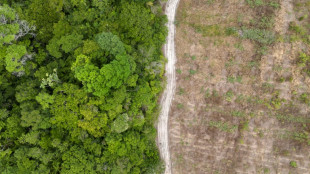 Brazil boasts drop in deforestation ahead of UN climate talks
Brazil boasts drop in deforestation ahead of UN climate talks
-
Russians marking Stalin's repression warn against return to past
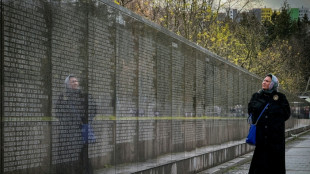
-
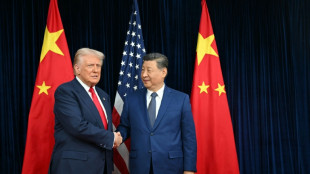 Stocks mostly fall as investors digest Trump-Xi talks, earnings
Stocks mostly fall as investors digest Trump-Xi talks, earnings
-
Turkey says Pakistan-Afghanistan talks to resume

-
 Record-breaking India upset Australia to reach World Cup final
Record-breaking India upset Australia to reach World Cup final
-
US to limit refugees to record low 7,500, mostly white South Africans

-
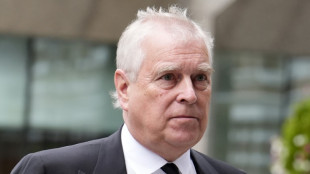 King Charles to strip Andrew of royal titles, residence: palace
King Charles to strip Andrew of royal titles, residence: palace
-
Sinner marches into Paris Masters quarters, Bublik downs Fritz

-
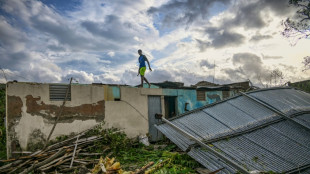 Devastated Caribbean assesses damage as hurricane eyes Bermuda
Devastated Caribbean assesses damage as hurricane eyes Bermuda
-
Trump stirs tensions with surprise nuclear test order
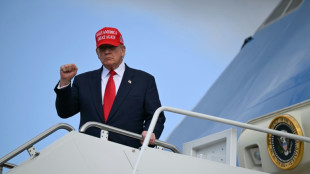
-
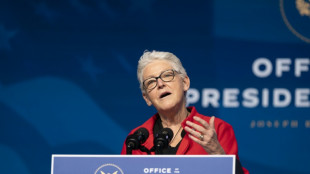 100 US local leaders will attend COP30 in 'show of force'
100 US local leaders will attend COP30 in 'show of force'
-
UN warns of 'atrocities,' 'horror' in Sudan as RSF advances

-
 Rodrigues hits ton as India stun Australia to reach Women's World Cup final
Rodrigues hits ton as India stun Australia to reach Women's World Cup final
-
Trump's order on nuclear testing: what we know
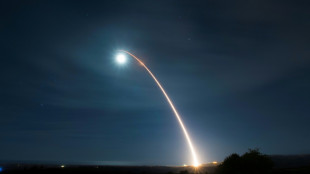
-
 Spalletti returns to football with Juventus after Italy flop
Spalletti returns to football with Juventus after Italy flop
-
Rodrigues hits ton as India chase 339 to stun Australia in World Cup semis

-
 Saudi chases AI ambitions with homegrown firm pitched to global investors
Saudi chases AI ambitions with homegrown firm pitched to global investors
-
Russia batters Ukraine energy sites with deadly aerial strikes
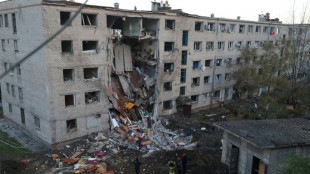
-
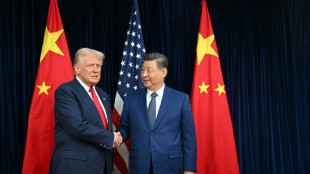 Stocks diverge as investors digest Trump-Xi talks, earnings
Stocks diverge as investors digest Trump-Xi talks, earnings
-
'Better to go to prison': Israeli ultra-Orthodox rally against army service
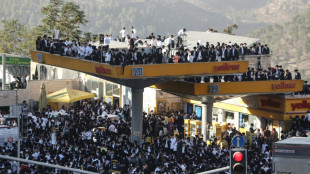
-
 Bublik downs fourth seed Fritz to reach Paris Masters quarters
Bublik downs fourth seed Fritz to reach Paris Masters quarters
-
UN climate fund posts record year as chief defends loans

-
 Man Utd must ignore outside noise to go in 'right direction', says Wilcox
Man Utd must ignore outside noise to go in 'right direction', says Wilcox
-
G7 to launch 'alliance' countering China's critical mineral dominance
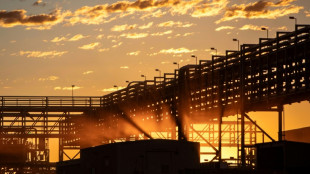
-
 Wallaby boss Schmidt wary of Ford's 'triple threat'
Wallaby boss Schmidt wary of Ford's 'triple threat'
-
Swedish hate-crime trial shines light on far-right 'fitness clubs'
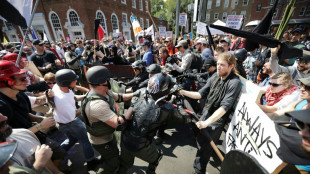
-
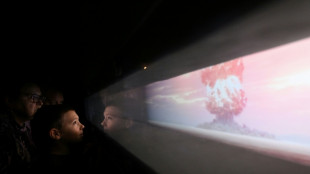 Trump call for nuclear tests sows confusion
Trump call for nuclear tests sows confusion
-
Chinese EV giant BYD says Q3 profit down 33%
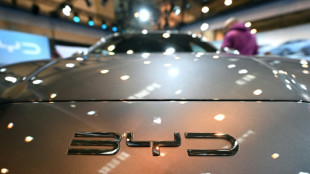
-
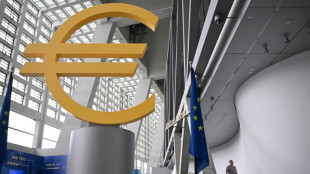 ECB holds rates steady with eurozone more resilient
ECB holds rates steady with eurozone more resilient
-
Independent Macau media outlet says it will close by December

-
 Shares in Jeep-maker Stellantis slump despite rising sales
Shares in Jeep-maker Stellantis slump despite rising sales
-
Shelton beats Rublev to reach Paris Masters last eight

-
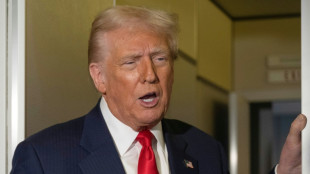 Trump stirs tensions with surprise order to test nuclear weapons
Trump stirs tensions with surprise order to test nuclear weapons
-
S.Africa court rules ANC leader Luthuli was killed in apartheid 'assault'
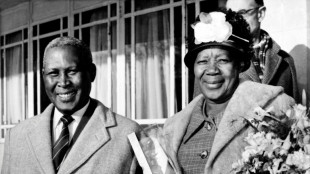
-
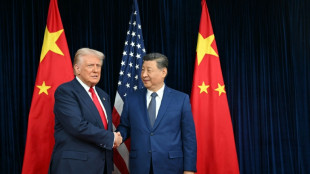 Stocks slide as investors digest Trump-Xi talks, earnings
Stocks slide as investors digest Trump-Xi talks, earnings
-
No GDP data released as US shutdown bites
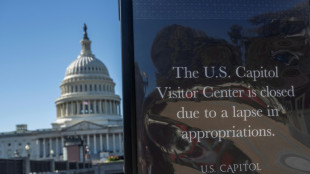
-
 PSG's injured Doue to miss Bayern match, out for several weeks
PSG's injured Doue to miss Bayern match, out for several weeks
-
Litchfield ton guides Australia to 338 in World Cup semis
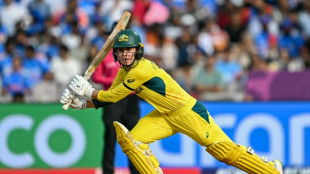
-
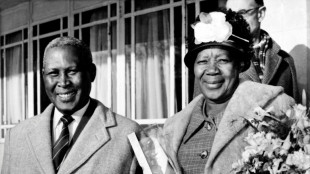 S.Africa court rules ANC leader Luthuli killed in apartheid 'assault'
S.Africa court rules ANC leader Luthuli killed in apartheid 'assault'
-
With inflation under control, ECB holds rates steady again
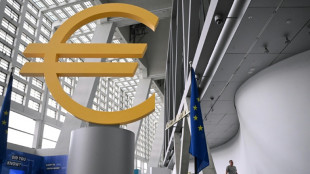
-
 Nigerian designer embraces 'clashes' and 'chaos' at Lagos Fashion Week
Nigerian designer embraces 'clashes' and 'chaos' at Lagos Fashion Week
-
Nissan says expects $1.8 bn operational loss in 2025-26
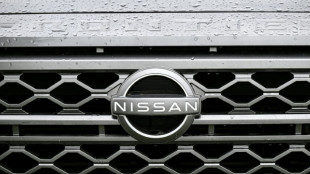

Trump's order on nuclear testing: what we know
President Donald Trump has ignited a firestorm of controversy and confusion with his announcement that the United States will begin nuclear weapons testing.
It's unclear whether he was referring to testing weapons systems -- which the United States already does -- or actually conducting nuclear explosions, which only US arch-foe North Korea has carried out in the 21st century.
Below, AFP examines what Trump has said, the state of current US testing, and what it would take to resume explosive tests.
- What Trump said -
Trump said in a social media post that he had instructed the Defense Department "to start testing our Nuclear Weapons on an equal basis" with Russia and China.
However, neither of those countries are confirmed to have carried out recent explosive testing, and it is the Department of Energy that is responsible for the US nuclear stockpile.
The president subsequently told journalists on Air Force One that "they seem to all be doing nuclear testing," and that "we halted it many years ago but with others doing testing I think it is appropriate we do also."
He offered no details on the nature of the testing he had ordered.
- Current US testing -
The United States conducted the world's first nuclear test in July 1945 and used two nuclear weapons against Japan near the end of WWII.
It has carried out more than 1,000 explosive nuclear tests in total -- most recently in 1992 with a 20-kiloton underground detonation at the Nevada Nuclear Security Site.
That year, Congress passed a temporary moratorium on underground nuclear tests unless a foreign state conducted one, which has since occurred. Washington had already agreed not to conduct tests in the atmosphere, outer space and underwater as part of the Limited Test Ban Treaty, which it has been a party to since 1963.
The United States has also been a signatory since 1996 to the Comprehensive Nuclear-Test-Ban Treaty, which bans all atomic test explosions, but the Senate has yet to ratify it.
In the absence of explosive testing, the United States ensures its arsenal's reliability through the so-called Stockpile Stewardship Program, which includes "a wide range of scientific activities, from modeling and simulation to subcritical nuclear experiments," according to the US National Nuclear Security Administration.
"This program allows us to assess and certify the stockpile with extraordinary confidence," it says.
Washington also periodically tests its nuclear delivery systems such as intercontinental ballistic missiles.
The US military launched an unarmed Minuteman III missile earlier this year, with the Space Force saying at the time that the United States had carried out more than 300 similar tests overall.
- Resuming explosive testing -
The president has the authority to authorize explosive tests, and Washington's forces have "the capability to resume testing within 24-36 months of a presidential decision to do so," the US Congressional Research Service says.
It notes that a 2012 study found that "the response time for resuming underground explosive testing is driven more by compliance with environmental, health, and safety regulations than by the technical testing requirements or the need to restore equipment and facilities."
Doreen Horschig, a fellow with the Project on Nuclear Issues at the Center for Strategic and International Studies, said the US National Nuclear Security Administration would be able to "get the test site ready within six to 10 months for a very basic underground test."
"The timeframe is much longer if you want to test new warheads and new capabilities," Horschig said.
But she also noted that there is likely to be political opposition to a resumption of testing "from both sides of the political camps" in the United States, while "our allies (also) do not see a need for (a) return to testing."
J.Saleh--SF-PST
